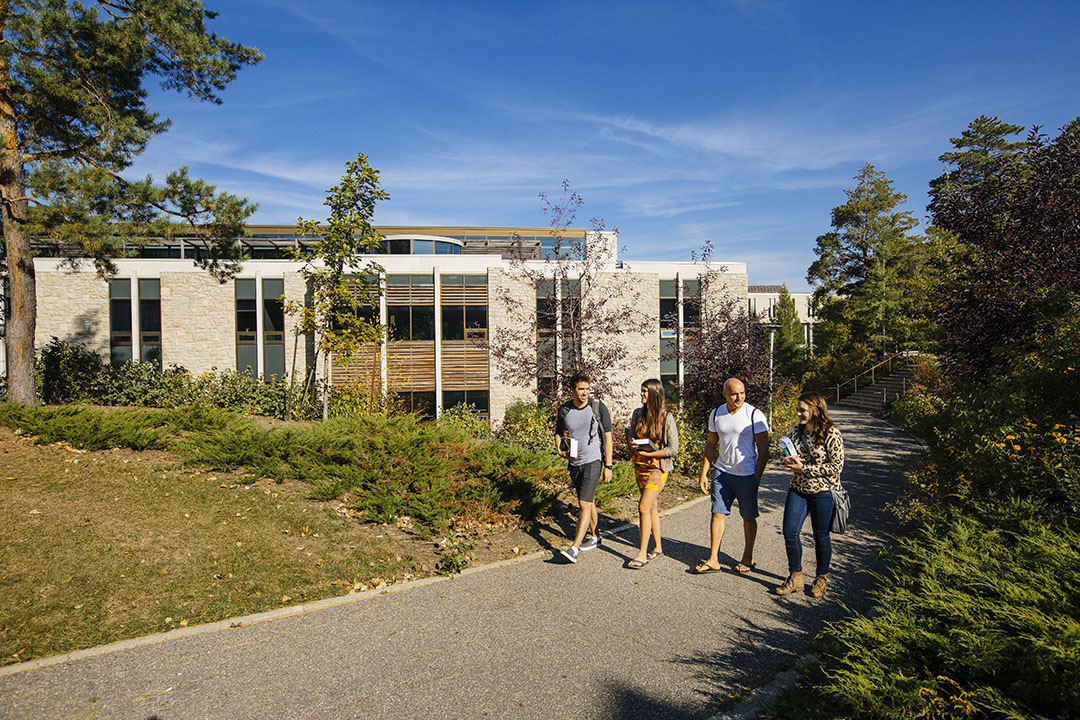
Empowering students to ‘be what the world needs'
One journey started with a fascination with space and led to an exploration of satellite technology for insights on climate futures. Another was shaped by witnessing difficult experiences in family and community – and inspired a reflection on the long-term implications of decision-making in the justice system.
By Globe and Mail Western Schools ReportThese two very different trajectories – of Kennedy Marley and Colin Dyck – converged at the University of Saskatchewan (USask) and were inspired by a theme that is central to the university's overarching goal: to help tackle some of today's most challenging problems.
Another key touch point connecting the two pathways is that the two students were recently awarded Rhodes scholarships, which USask President Peter Stoicheff sees as "a testament to the academic excellence and community leadership both Kennedy and Colin have shown throughout their time at USask.”
What makes this especially meaningful is the high level of competition for this international award, which is considered the oldest and most prestigious graduate scholarship in the world.
"In Canada, there are 98 public universities and only 11 Rhodes scholarships available annually," he says. "So, for a single university to get as many as two is a real accomplishment; and we've received two for two years in a row. This tells me two things: one, our students are as good as the best in the world; and two, we have excellent faculty and support for nurturing talent both in and beyond the classroom."
Making a difference for Indigenous communities
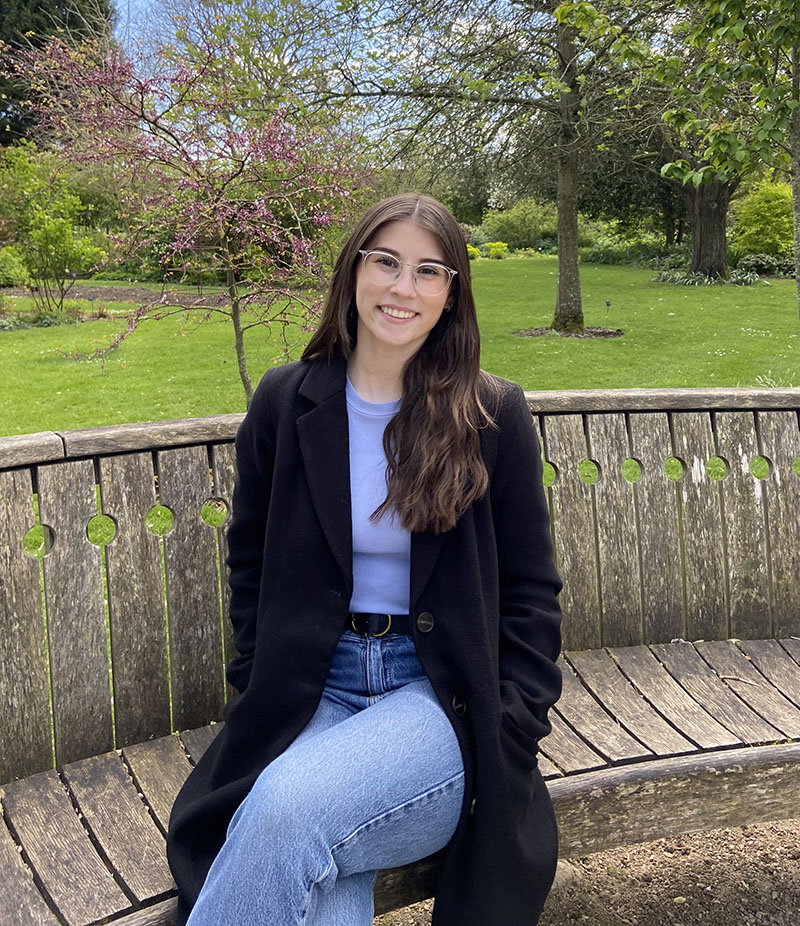
As a Métis woman traditionally from Treaty 4 Territory, Ms. Marley is interested in how the justice system impacts not only individuals but also families and communities – and how a long-term view as well as coordination and collaboration across systems can potentially enhance outcomes.
"Law is not a preventative career. The justice system reacts to people's experiences with trauma – and we deal with the aftermath, but we need to consider how families and communities – and generations to come – are impacted by sentencing so we are not perpetuating this trauma," she says, adding that her perspective has been informed by "having a family member in the system.
"In the past, my older brother has had difficult experiences with the law. As I learned more about my extended family and community, I came to understand this as a microcosm of what is happening in a lot of Indigenous communities."
While everyone dealing with the justice system can experience hardship, Ms. Marley advocates for "a focus on how sentencing can better respond to the unique experiences of Indigenous peoples in Canada. The rates at which Indigenous Peoples are incarcerated have long been disproportionately high, and this remains a tragic manifestation of the ongoing effects of colonialism. That's a cycle that needs to be broken, and it will require shifting our collective understanding of what rehabilitation, reintegration and healing mean."
The goal of making a meaningful difference for Indigenous communities inspired her to earn her law degree at USask. Support from the university, she says, "has been life-changing for me and my family. People sometimes underestimate the value of a scholarship, which goes beyond providing financial support and serves as encouragement and recognition for good work and engagement."
Recognition for Ms. Marley includes the Law Society of Saskatchewan Silver Medal for her academic achievements as well as the Order of Gabriel Dumont Bronze Medal for her significant contributions to the Métis Nation.
Practical experience gained in law school and at the Court of Appeal for Saskatchewan inspired a desire to look at ways of better integrating different areas of responsibility. "As part of my criminal defence practicum, I worked with two criminal defence lawyers and went along to client meetings, trials, sentencings and bail hearings," she says. "I was surprised to find a defence lawyer's engagement with a client typically ends at sentencing – and would like to see some continuity for what happens next."
Societal transformation – including driving better results for Indigenous communities – "isn't going to happen through the justice system alone," adds Ms. Marley, who will combine legal studies with her passion for the humanities when she heads to Oxford University. "We need to work together across multiple areas, including the education, health care and social service systems."
A focus on what the world needs
At USask, Ms. Marley follows "a long tradition of training Indigenous lawyers in Canada," says Dr. Stoicheff. "Our College of Law has been a leader in supporting and promoting the inclusion of Indigenous people in Canada's legal system since the 1970s, when what is now the Indigenous Law Centre was founded."
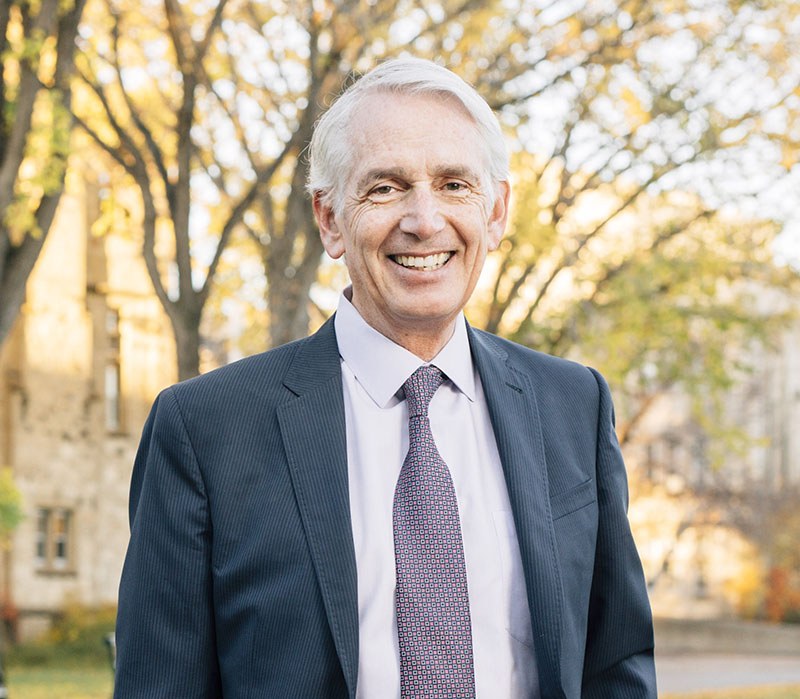
From bringing some of Canada's first Indigenous lawyers into the profession, USask has continued these efforts over the past five decades, reflecting a steadfast commitment "to being a leader rather than a bystander in Canada's great opportunity of reconciliation," he explains. "We see this as our responsibility as a university, given, in part, that Indigenous people make up nearly 20 per cent of Saskatchewan's population."
This priority is also reflected in the comprehensive Be What the World Needs campaign that seeks fundraising support for areas of critical importance to USask – and where Indigenous achievement is listed prominently alongside goals such as critical research, visionary spaces and student support.
"We're operating on all cylinders to achieve our goal of being the university the world needs," Dr. Stoicheff says. "This requires understanding the challenges faced in our communities, our province, Canada and across the globe, whether that's food security, water security, health, pandemic preparedness, and more."
The aspiration to be responsive to community needs resonates widely, leading to "a spectacular year or two for our campaign, where we're confident of meeting or even exceeding our goal of $500-million," he notes. "We've also risen in key international university rankings. Last year, we received an award for the Canadian university that saw the biggest jump in international rankings over the past five years."
Driving such achievements are intentional efforts to create world-class facilities, including the Global Institute for Water Security, the Global Institute for Food Security, the Vaccine and Infectious Disease Organization, which will be Canada's Centre for Pandemic Research, and the Canadian Light Source, the country's only synchrotron.
USask's facilities act as "talent magnet," and Dr. Stoicheff says there are people from over 130 countries working and studying at the university. In addition, researchers come to use research infrastructure, and this allows "students and faculty to rub shoulders with international researchers.”
Turning to space for insights on Earth
Collaborative research efforts at USask include "developing instruments for NASA missions," says Mr. Dyck, who will graduate with a Bachelor of Science in Engineering degree this June.
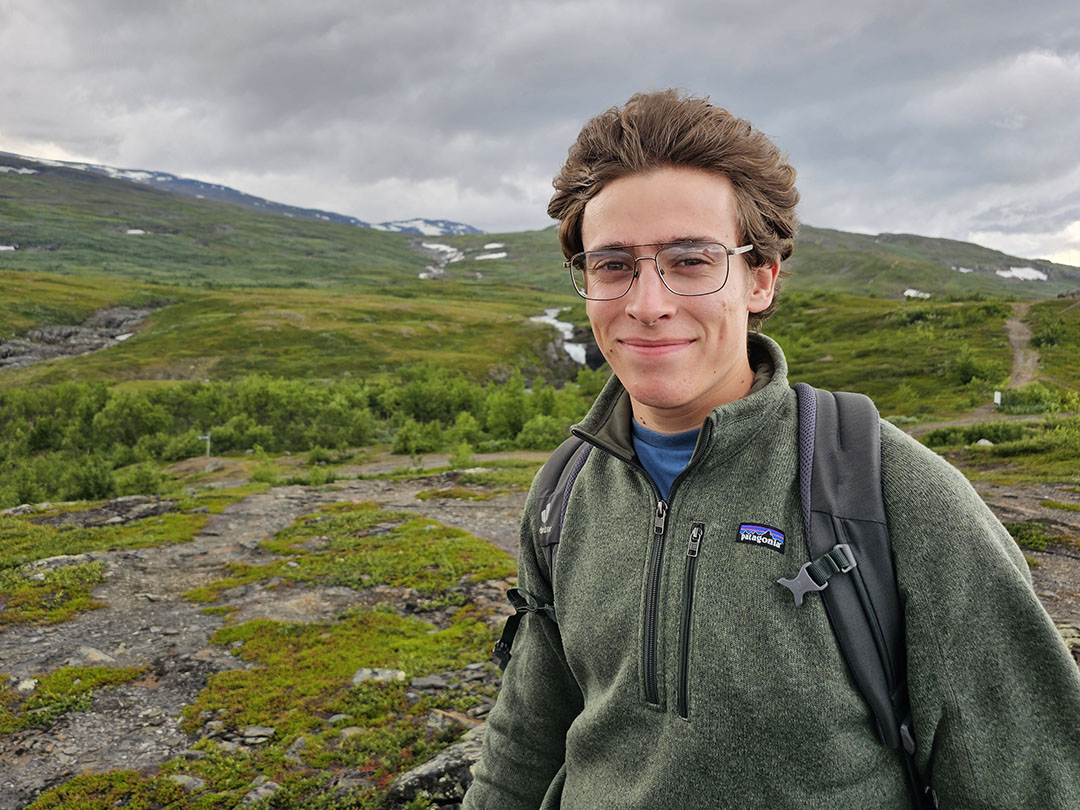
"I've always been fascinated with space and studying engineering physics matched my interest because it offered a blend of pure and applied science – and a chance to work on technology," he says. "My interest in space eventually led me to work with a research group from the Institute of Space and Atmospheric Studies [ISAS], including on projects that are part of a mission for NASA through the Canadian Space Agency (CSA)."
Mr. Dyck participated in the design of Saskatchewan's first and second home-grown satellites, RADSAT-SK1 and RADSAT-SK2, with the student-led organization SKCubeSat in partnership with the University of Saskatchewan Space Design Team. He was also recently part of a team at the ISAS to test a satellite prototype on a high-altitude balloon in Sweden as part of an international collaboration between the CSA, the French space agency and the Swedish Space Corporation.
The idea is to gain insights into the presence of atmospheric aerosols by equipping satellites with capabilities to quantify the specific wavelengths associated with light being
reflected from these tiny suspended liquids and solids. Applying visual imaging techniques to such data can help track and map aerosol movement and behaviour, he explains.
"I'm interested in using these instruments to figure out what happens when acute aerosols are released into the atmosphere, for example, from forest fires or industrial facilities," says Mr. Dyck. Beyond enabling short-term interventions, such as air quality monitoring and health advisories, "this can give us a picture of long-term atmospheric dynamics like weather systems and the climate. We can also look at the use of aerosols to potentially cool Earth and combat climate change. "
Oxford's Intelligent Earth program, which looks to combine environmental data with machine learning, offers a path for "investigating atmospheric systems," he adds. "Understanding the long-term effects of humans on the environment – as well as the potential effect the environment might have on humans can allow us to make a real impact on Earth."
Inspired by community connections
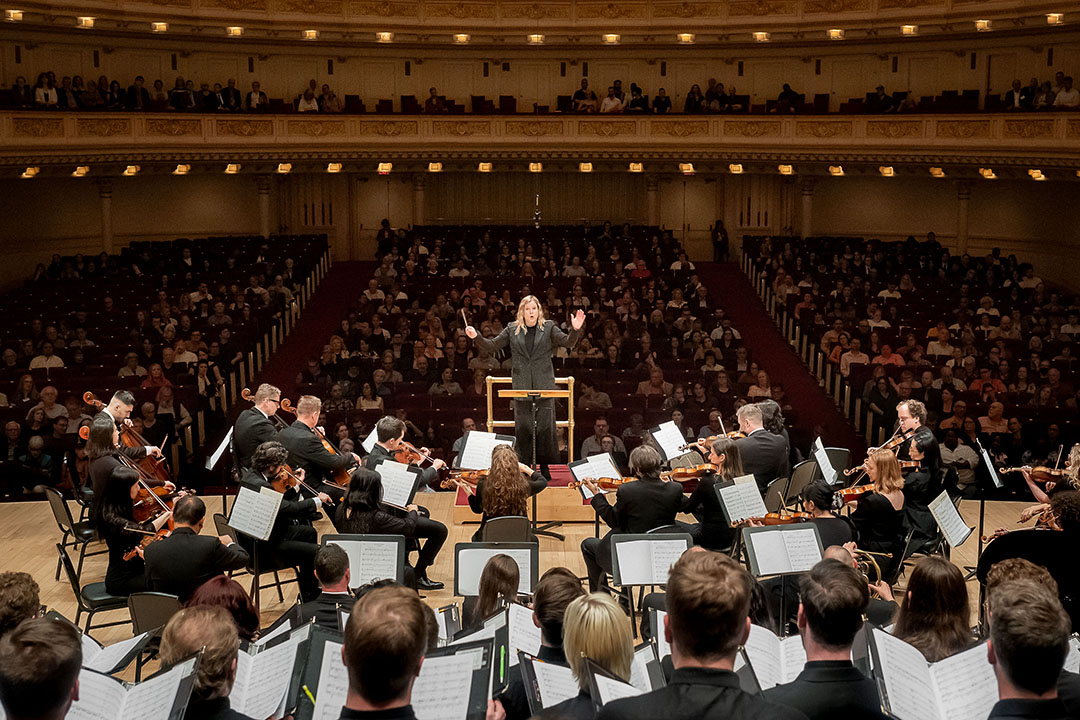
Beyond his research, Mr. Dyck has mentored students at a local youth group and served as a maintenance volunteer at the Library of Things in Saskatoon. He was also part of the Greystone Singers, an auditioned choir at USask, where his interest in Oxford was sparked.
"A previous member of the Greystone Singers was successful in her application for the Rhodes scholarship, so I figured it was worth a shot," he says, referring to Rhodes scholar Rachel Andres, a biological sciences student, who went to Oxford in 2024 along with nursing student Taron Topham.
Dr. Stoicheff offers the same enthusiasm when speaking about the Greystone Singers and the Huskie sports teams as he does with VIDO and the CLS. "There are so many great opportunities for our students to connect, from research collaborations and community engagement to sports and cultural activities," he says. "The Greystone Singers, for example, received a standing ovation at Carnegie Hall for a performance just last June."
Ms. Marley places a similar emphasis on community-mindedness – as it allows us to work together for the common good. She welcomes a heightened focus on community engagement, including from the Rhodes Trust. "I see so many people doing really inspiring things, whether they're organizing gatherings, sitting on boards or being involved in clubs," she says. "I think that's equally as important, if not more, as one’s academic success."
On their quest to help solve some of the big challenges faced by communities – from social justice to climate change – the examples of Ms. Marley and Mr. Dyck illustrate just much can be achieved with the support of "the university the world needs."
Together we will support and inspire students to succeed. We invite you to join by supporting current and future students' needs at USask.

